Novice Chinese
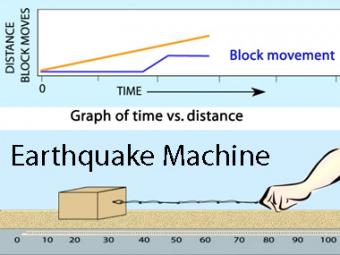
How can you model earthquakes in the classroom?
Animation of the single-block "Earthquake Machine", a mechanical model of the earthquake process using a wood block, sandpaper, and rubber bands. The sandpaper represents the contact between the "plates" and the rubber band represents the elastic nature of the lithosphere. This model shows how "Forces, Faults, and Friction" interact as elastic energy is slowly stored when the rubber back stretches and then is rapidly released as the block jerks during an "earthquake". On the graph, the yellow line shows the movement of the hand over time, thus a steady line. The blue line shows the movement of the block during slip on "earthquakes" thus the jumps in distance over time.
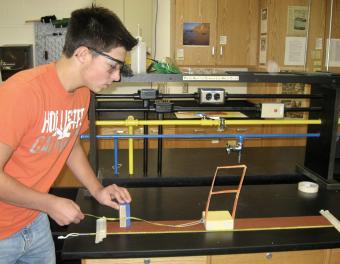
Using a block-and-sandpaper model, students collaborate in small groups to investigate how energy is stored elastically in rocks and released suddenly as an earthquake (the earthquake cycle). This activity emphasizes the role of mechanical models in understanding and testing ideas in science.
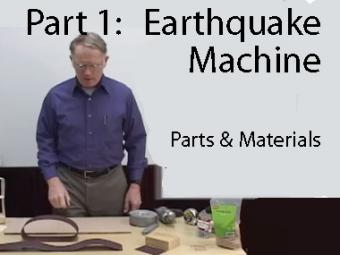
This video shows how to build the "Earthquake Machine", a physical model that represents the “earthquake cycle”, the slow accumulation of elastic energy in rocks on or adjacent to a fault followed by rapid release of elastic energy during an earthquake.
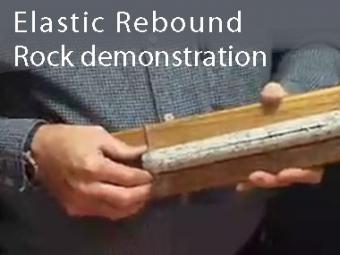
This demonstration shows that rocks are elastic by squeezing a slit core of rock.
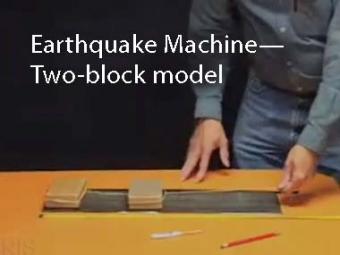
THE two-block "Earthquake Machine" uses two blocks with different grit sandpaper to model interactions between adjacent patches along a fault.
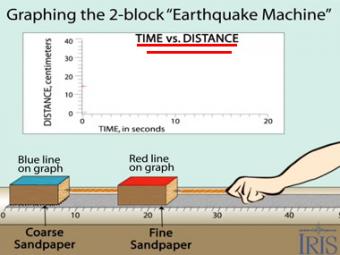
Graphing time vs. distance using the classic block-and-sandpaper "earthquake machine"
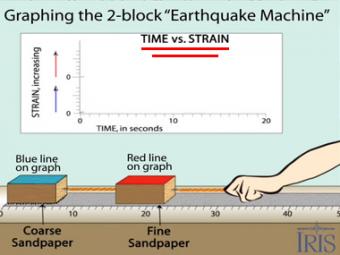
Graphing time vs. strain using the classic block-and-sandpaper "earthquake machine"
We encourage the reuse and dissemination of the material on this site as long as attribution is retained. To this end the material on this site, unless otherwise noted, is offered under Creative Commons Attribution (CC BY 4.0) license